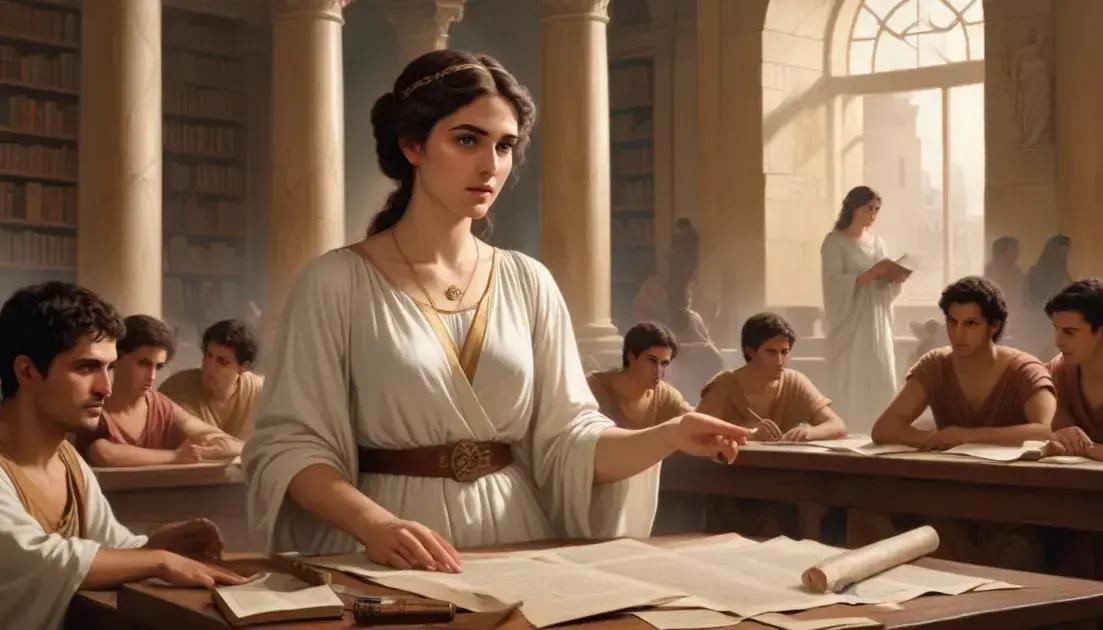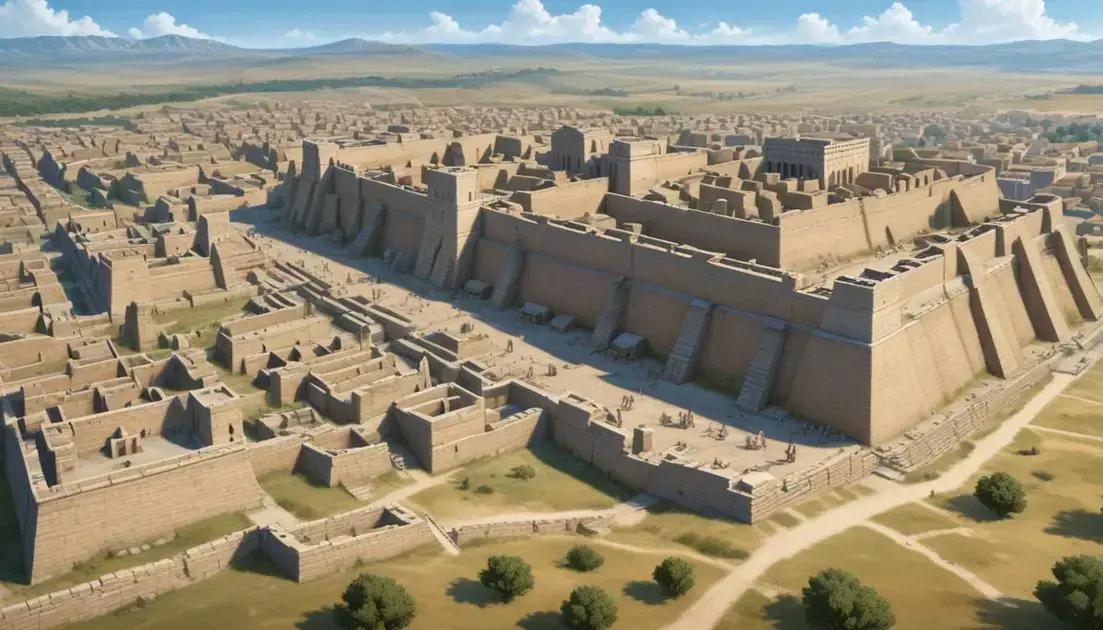
Hypatia of Alexandria: The First Martyr Scientist
Hypatia of Alexandria was a pioneering mathematician and philosopher known for her significant contributions to science during a time of cultural conflict. She emphasized critical thinking and encouraged her students to question established ideas. Her legacy as a symbol of intellectual freedom and female empowerment in education continues to inspire modern scholars today.
Hypatia of Alexandria, a name that resonates through the corridors of history, was not just a mathematician but a symbol of free thought and intellectual bravery. Join me as we delve into the life of this extraordinary figure and explore her monumental contributions to science!
Introduction to Hypatia
Hypatia was a remarkable figure in history, known for her wisdom and intellect. Born in Alexandria, Egypt, she lived during a time of great change. As the daughter of a famous mathematician, she showed early talent in math and philosophy.
She taught students about mathematics and astronomy. People traveled from far away just to listen to her lectures. Hypatia was not only a teacher but also a scholar. She wrote several works, mainly on mathematics and astronomy, although unfortunately, most of her writings did not survive.
Strong and independent, she stood out in a world dominated by men. Hypatia encouraged everyone to think freely and question the status quo. Her dedication to knowledge helped shape the minds of many. She remains a symbol of intellectual resistance even today.
Her Contributions to Mathematics
Hypatia made important contributions to mathematics during her lifetime. She is known for her work on geometry and algebra. Hypatia taught the principles of these subjects to her students in a way that was easier to understand.
One of her notable contributions was her work on the Almagest, an ancient text on astronomy by Ptolemy. She helped explain its mathematical concepts. Hypatia also worked with the geometry of conic sections. Her insights made learning these complex ideas much more accessible.
Many of her teachings remain influential today. She showed that mathematics is not just about numbers, but also about understanding the world around us. Hypatia’s methods encouraged a deeper appreciation for math and its role in life.
Students loved her teaching style. She made lessons engaging and inspired many to explore mathematics further. Hypatia’s legacy in mathematics is a lasting one, reminding us of the importance of critical thinking and creativity.
Hypatia as a Philosopher
Hypatia was not just a mathematician; she was also a brilliant philosopher. She taught her students to think deeply and question everything. Philosophy was not only about theories for her; it was a way to understand life.
She discussed many topics, including ethics and the nature of the universe. Hypatia believed in logic and reason. She encouraged her students to explore these ideas openly. This approach promoted critical thinking and independence.
Many people admired her for her ability to teach complex concepts clearly. She used practical examples to make philosophy relatable. Hypatia showed that philosophy could be applied to everyday life.
Her ideas helped bridge the gap between different schools of thought. She was known for blending Neoplatonism with other beliefs, making her teachings unique. Her work influenced many others in the field of philosophy.
Hypatia’s contributions continue to inspire today. She reminds us of the power of asking questions and seeking knowledge. Her legacy lives on through her teachings and the minds she shaped.
The Historical Context of Her Life
Hypatia lived during a time of great change in the city of Alexandria. This city was a hub of knowledge and culture in the ancient world. People from many backgrounds came here to study and share ideas. It was a melting pot of different philosophies and religions.
During her life, the conflict between pagan beliefs and rising Christianity was intense. Hypatia was a proud pagan, which made her work controversial. Many viewed her teachings as a challenge to the new Christian faith. Despite this, she continued to teach and share her knowledge.
The political climate was also unstable. Alexandria faced many struggles, including riots and power struggles between different groups. Hypatia’s strong voice for reason and learning stood out in this turbulent time. She became a symbol of free thought, inspiring many to seek knowledge despite the risks.
Her life reflects the larger battles over ideas and beliefs. Hypatia’s story not only shows the importance of knowledge but also the courage to stand firm in one’s beliefs. Her legacy remains powerful even today, reminding us of the value of open-mindedness.
Legacy and Influence on Science
Hypatia’s legacy continues to shape science and philosophy today. She was one of the first women to gain recognition in these fields. Hypatia’s approach to teaching encouraged many to pursue knowledge and question existing ideas.
Many of her students became influential thinkers, spreading her teachings far and wide. Her work inspired future generations of scientists and philosophers. They built upon her ideas, further advancing mathematics and astronomy.
The way Hypatia engaged with her students was unique. She emphasized critical thinking, encouraging them to explore concepts independently. This method of teaching has influenced modern education significantly.
Over time, Hypatia’s life and tragic end became symbols of the battle for intellectual freedom. Her story reminds us of the importance of knowledge and dialogue. Many see her as a role model for women in science and education.
Hypatia’s influence is felt across various disciplines, including mathematics, philosophy, and computer science. She stands as a bright example of how one person’s dedication can change the course of history and inspire countless others.
Conclusion
In conclusion, Hypatia of Alexandria was a remarkable figure who left a lasting impact on both mathematics and philosophy. Her emphasis on critical thinking and the pursuit of knowledge inspired many students and thinkers. Hypatia showed us that education is not just about facts but about understanding and questioning the world around us.
Her legacy serves as a powerful reminder of the importance of intellectual freedom. Even in challenging times, she stood firm in her beliefs and encouraged others to do the same. Hypatia’s story continues to inspire today, especially for women in science and education. By promoting a curiosity for learning and a commitment to truth, we can honor her memory and continue her mission.


